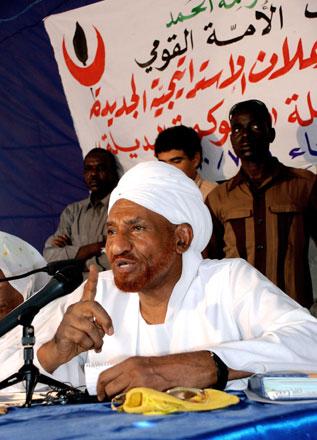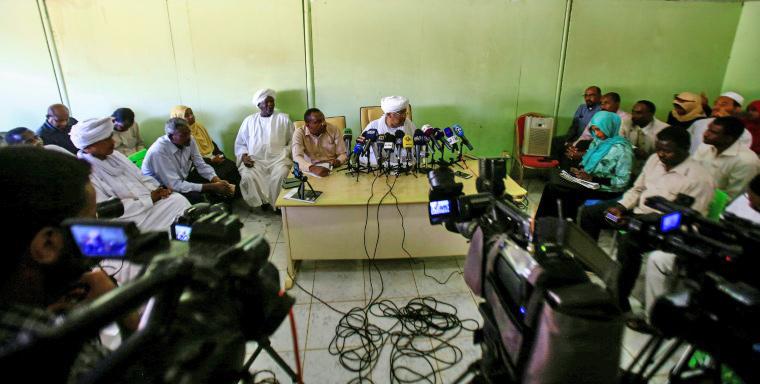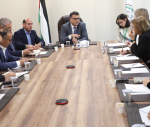You are here
Sudan arrests ex-PM after 'rapes by military' claim — aide
By AFP - May 17,2014 - Last updated at May 17,2014
KHARTOUM — Sudan's state security arrested on Saturday opposition leader and ex-premier Sadiq Al Mahdi, his secretary said, after he reportedly accused a counter-insurgency unit of rape and other abuses of civilians in Darfur.
"At 8:45pm (1745 GMT) a number of state security officers came to the home of imam Sadiq Al Mahdi with a warrant, and they arrested him," his secretary, Mohammed Zaki, told AFP.
Zaki had no further details about the arrest, which makes Mahdi one of the highest-profile figures to be detained in Sudan in recent years.
The National Intelligence and Security Service (NISS) has the right to detain people for more than four months without judicial review.
On Thursday Mahdi, who heads the major opposition Umma party, appeared before prosecutors for questioning over the allegations he made at a press conference about the Rapid Support Forces (RSF).
NISS, which has authority over the RSF, filed a criminal complaint accusing Mahdi of distorting the image of the forces, threatening public peace, undermining the prestige of the state and inciting the international community against Sudan, newspapers reported.
At a news conference in Khartoum on Wednesday, commanders of the RSF denied their force had looted, raped or committed arson.
"All the allegations against us are lies," an angry Mohammed Hamdan Dalgo, the unit's field commander, shouted.
Mahdi's detention comes as Umma and others opposition parties engage in a "national dialogue" with President Omar Bashir.
A senior opposition politician has told AFP that Umma is a main focus of the dialogue process that might lead to a new, coalition government.
The politician said Bashir is pushing for "a real change" because he realises the country is "collapsing".
The security service is resisting the dialogue process, the politician said.
A political scientist, El Shafie Mohammed El Makki, has said that even if Bashir himself is serious about reform, "not all the people in his party are for what is going on. You have to understand this".
The Bashir regime, which took power 25 years ago in an Islamist-backed coup, has faced mounting challenges since the separation of South Sudan three years ago
Inflation has soared and the Sudanese currency sank. Wars and unrest spread to about half of the country's 18 states, and internal divisions surfaced in Bashir's National Congress Party (NCP).
Repression peaked in September when thousands called for the regime's downfall after fuel price increases. Security forces are believed to have killed more than 200 protesters, many with gunshots to the head and chest, Amnesty International said.
Those demonstrations made clear the urgent need for reform, which Bashir addressed in January when he appealed for a broad national political dialogue and "renaissance" focused on peace.
Since then, in a tenuous political opening, some opposition political rallies have drawn thousands of people without interference by the security forces.
But youth activists have continued to be arrested.
Sixteen opposition parties have refused to join Bashir's dialogue unless certain conditions are met — including the abolition of laws restricting freedom.
Related Articles
The EU expressed “great concern” Wednesday over tighter restrictions in Sudan since ex-premier Sadiq Al Mahdi was detained in mid-May after reportedly accusing a counterinsurgency unit of abuses against civilians in Darfur.
KHARTOUM — Sudanese opposition leader and ex-prime minister Sadiq Al Mahdi returned to the country on Thursday more than two years after he
KHARTOUM — A network of Sudanese journalists went on strike on Thursday in the wake of deadly protests sparked by a hike in bread price















